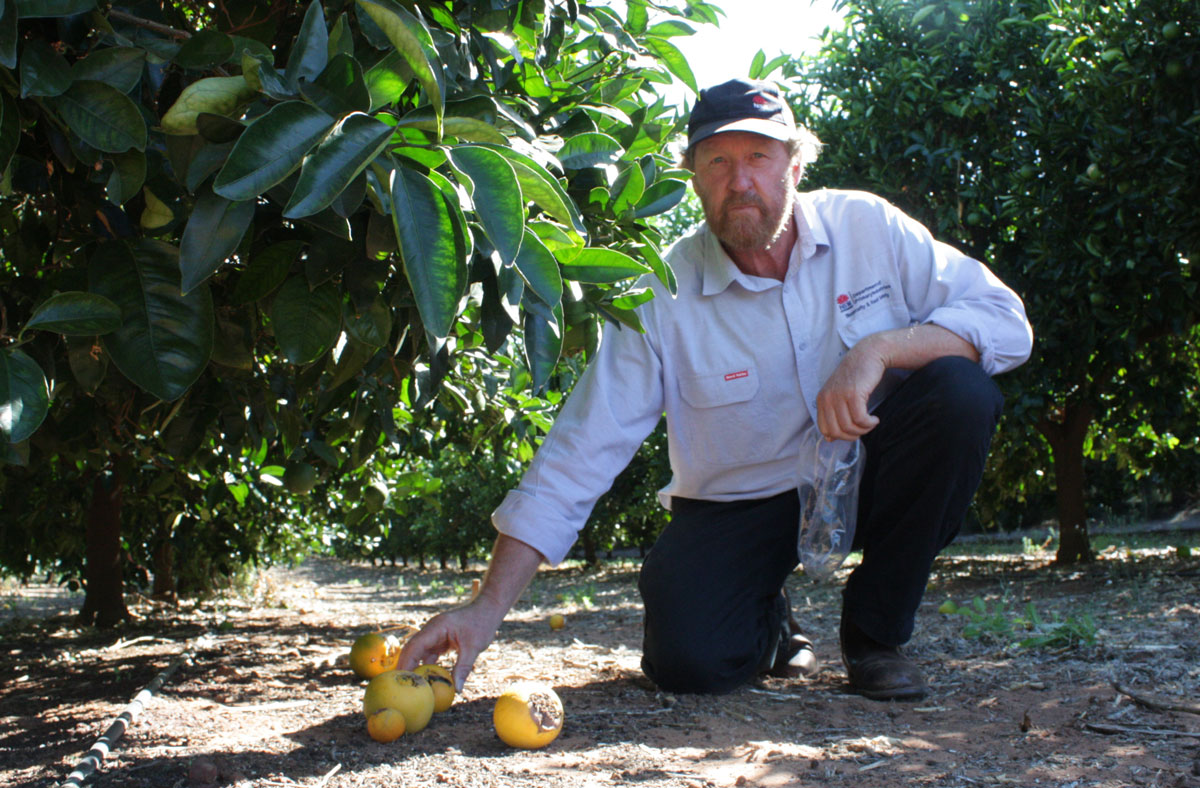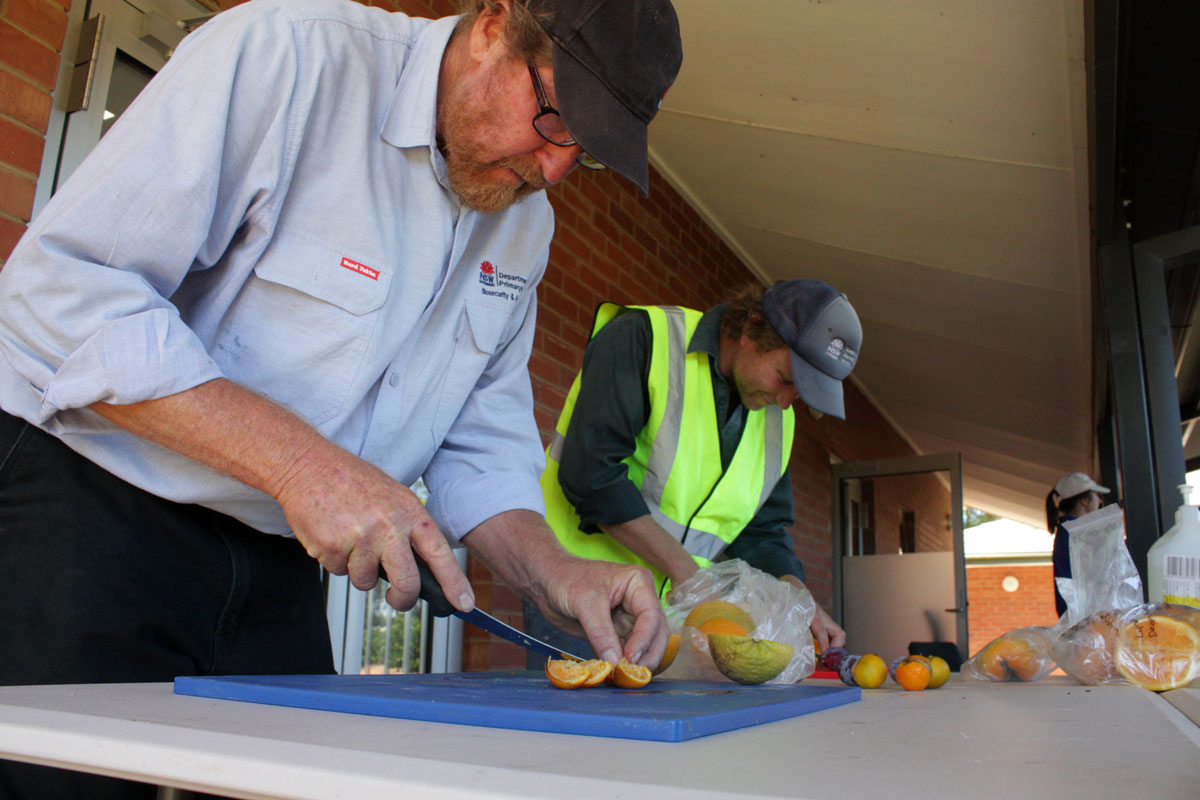
Working with interstate and national horticultural industry representatives, NSW government agencies this month took a forward step to fortify the state against one of the world's most destructive fruit pests, Mediterranean fruit fly (Medfly).
Exercise Shoo Fly was held in Dareton, to bolster the ability of lead agencies, NSW Department of Primary Industries (DPI) and Local Land Services (LLS), to mount an emergency response to eradicate a future Medfly incursion.
DPI's plant biosecurity leader, Bev Zurbo, said Medfly is not present in NSW, but it has established in Western Australia and the threat of a Medfly outbreak here is a real possibility with recent outbreaks, which were successfully eradicated, in South Australia.
"We chose Dareton, as it's the most likely location for an incursion to occur and we will need to mobilise resources into the area as quickly as possible," Ms Zurbo said.
"Exercise Shoo Fly used a real-life scenario to test how well our Medfly emergency response plans work, highlight any operational or logistical gaps, clarify DPI and LLS roles and responsibilities and identify future training needs.
"DPI built a significant level of corporate knowledge and response experience in managing Queensland fruit fly outbreaks and now this timely test of our current level of preparedness for a Medfly outbreak has put us in a good position if one does occur.
 "Local knowledge played a crucial role, adding to the practical resources we developed during the exercise to use in the event of a real-life Medfly incursion.
"Local knowledge played a crucial role, adding to the practical resources we developed during the exercise to use in the event of a real-life Medfly incursion.
"Extra support is also now being delivered by an early warning Medfly trapping network along the NSW side of the Murray River, which will alert us of Medfly presence so we can jump into an eradication response."
With 25 participants from Plant Health Australia, Wentworth Shire Council, Greater Sunraysia Pest Free Area, Agriculture Victoria, ACT Government, six Local Land Services regions and DPI, teams worked in the field, control centre and online to mount a full simulation of an emergency response to Medfly.
An important part of the exercise was to explore market access options to minimise business and economic impacts during an emergency response to eradicate Medfly.
Economically important host species for NSW include nectarines, peaches, table grapes, apples, pears and oranges, with producers facing economic impacts of reduced yield and quality, increased control costs and market loss.
Medfly, Ceratitis capitata, threatens horticultural industries in eastern Australia as its tolerance of cooler climates makes it highly invasive. Host fruit and vegetables are a vital part of the Medfly lifecycle and affected produce is unsaleable.
Growers are urged to be on the lookout for the pest and report any suspect Medfly sightings to NSW DPI or call the Exotic Plant Pest Hotline, 1800 084 881.






